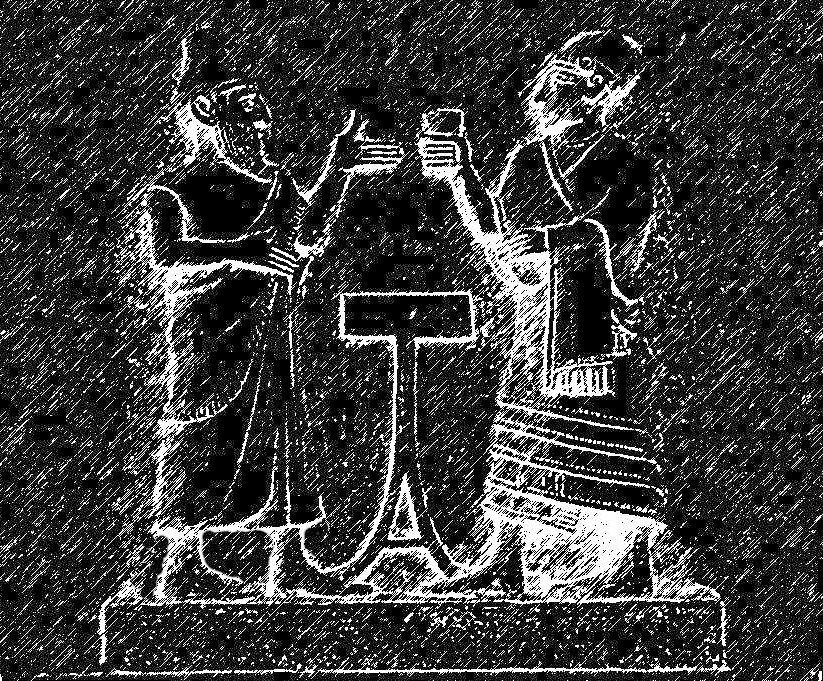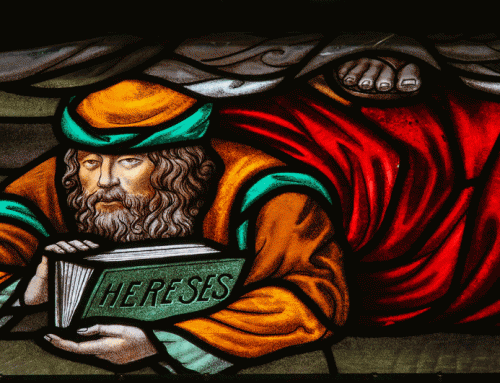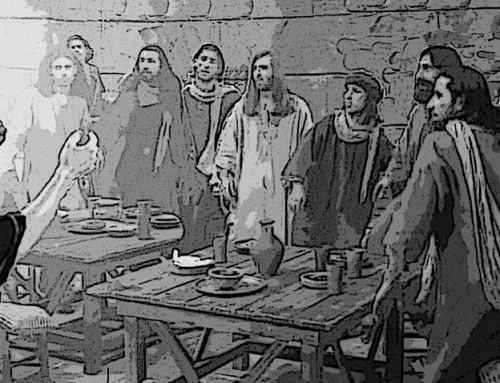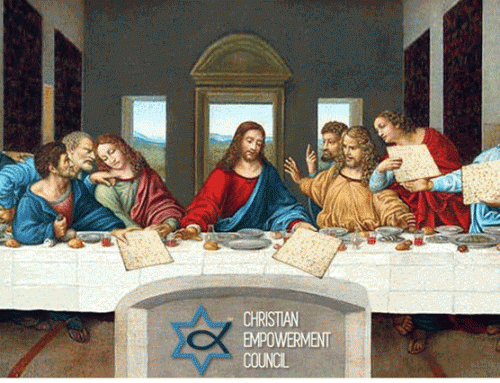By John David Pitcher Jr., MD
Have you ever known a controversial person? If you know Yeshua the Messiah, you know the most controversial person in all of history. But the controversy will be over soon because the Apostle Paul wrote in Romans 14:11 and Philippians 2:10-11 that the words Isaiah prophesied pertain to the Messiah:
“I have sworn by myself. The word has gone out of my mouth in righteousness, and will not be revoked, that to me every knee shall bow, every tongue shall take an oath.” (Isaiah 45:23)
The Jewish High Priests could look back on the long line of their ancestors and trace the succession from Aaron. But we can look further back still to one of the most remarkable men of all ancient times, and compared to Messiah, perhaps an equally controversial man, Melchizedek, king of (Jeru)Salem and Priest of God Most High. Melchizedek is mentioned only twice in the Hebrew Scriptures (Genesis 14:18 and Psalm 110:4) but his name is mentioned by Paul nine times (Hebrews 5:6, 10; 6:20; 7:1, 10, 11, 15, 17, 21) in his Midrash of Genesis. [A midrash is Jewish commentary on a Biblical text, clarifying or expounding a point of law or developing or illustrating a moral principle.]
As a physician, I want to know more! Is there anything about Melchizedek that Paul draws out of Hebrew Scripture through Midrash? Indeed there is. Paul’s nine uses of Melchizedek’s name is within the description of Melchizedek in Paul’s letter to the Hebrews, quoting David’s Psalm 110:4 four times!
But first, we learn of Melchizedek outside of Scripture through 13 small fragments of papyrus found in Qumran Cave 11. In quotation of Isaiah 61:2, the author of the papyrus, an Essene, substitutes the name Melchizedek for the name of Yahweh in the year of favor to atone for the sins of the righteous and to execute judgment upon the wicked. That is, the Essenes believed through their study of the Hebrew Scripture that he is returning in a Year of Jubilee!
There is not the space or time to develop the entirety of the Midrash, but briefly note that Hebrews 4:14-5:10 is a Midrash of Genesis 14:18-24. Paul took six words out of the Torah and wrote this section of Hebrews. The name Melchizedek is an ANCHOR POINT of the Midrash. In this section of the Torah, four of the five uses of El Elyon in the Hebrew Scriptures are used to describe Melchizedek as Priest of God Most High. The only other use is Psalm 78:35, identifying the Redeemer. Paul connects the dots, so to speak, by stating in Hebrews 5:7, “in the days of His flesh” and by using the word “suffered” in Hebrews 5:8, the verb form of the Greek word used for the Passover Lamb.
The use of El Elyon in Psalm 78:35 is within the Elohistic psalter (Psalms 42-83) ending with 83:18 where the Greek “Most High” (Upsistos) ends the psalm suggesting Psalm 83 could be connected to the Year of Jubilee the Essenes saw as armies gather around Jerusalem.
Note that Hebrews 6:18b-20 is a Midrash of Genesis 19:9-38. There are eight words in common to both passages. The thought of fleeing for refuge by Lot and of the believer in Messiah also connects the two passages.
Paul wrote in Hebrews 7:1-3:
“For this Melchizedek, king of Salem, priest of God Most High, who met Abraham returning from the slaughter of the kings and blessed him, to whom also Abraham divided a tenth part of all (being first, by interpretation, “king of righteousness”, and then also “king of Salem”, which means “king of peace”, without father, without mother, without genealogy, having neither beginning of days nor end of life, but made like the Son of God), remains a priest continually.”
In Hebrews 7:1-3, six Greek words in Paul’s letter to the Hebrews are used a combination of eleven times as a Midrash of the 70 Rabbis’ translation into Greek of the Hebrew Scripture of Genesis 20:1-21:23 where those six Greek words are used a combined total of 53 times. In those three verses, six terms are used (a seventh in Hebrews 7:10) with the mention of Abraham’s loins, an eighth with the use of “perfection” in Hebrews 7:11 [also used in the New Testament to describe the baby in the womb of the Virgin Mary in Luke 1:45], and a ninth in Hebrews 7:15 (with the use of “likeness”). These are unmistakably genetic terms, before the field of genetics was even known:
1) Without father
2) Without mother
3) Without genealogy
4) Having neither beginning of days
5) Having no end of life
6) Made like
The word “made like” (aphomoiomenos) is literally “taking an exact image.” The entire phrase then literally, “taking an exact image—the Son of God,” and is a Midrash to the verse in Genesis 21:1 where Sarah bore a son at the set time of which God had spoken to Abraham, as it had been announced. In medical terminology, “made like” (“taking an exact image”) means “genetically identical.” This is not a phenotypical likeness, as in the likeness between father and son, but a genotypical likeness– as in the unique DNA of each person.
Thus the Greek word “made like” (“taking an exact image”) in its sole use in either the Septuagint or the New Testament describes the uniqueness of God’s salvation plan for mankind. The Son of God pre-incarnate Messiah known as Melchizedek is the same person as the Messiah genetically who would come as a baby 2000 years later.
Some commentators have denied the interpretation that Melchizedek and Yeshua are one in the same, not taking into account the genetic terms that abound in this passage of Paul’s Midrash, and indeed he accused his readers in this “hard to explain” area of being “dull of hearing” (Hebrews 5:11) when he first mentions Melchizedek. (Hebrews 5:1-10)
Hebrews 7:10-16 is a Midrash of Genesis 21:32-24:6. Paul took 17 words (for a combined 22 times) out of the Torah where those same 17 words are used a total of 32 times. In this last use by Paul of the name of Melchizedek, the Akedah (the Binding of Isaac), is recorded, and Abraham named the place, “The LORD Will Provide.”
Think about it in terms of genetics. The same six billion molecules (base-pairs) that make up the genetic code from Mary, before she was even born, half were combined with the holy genetic code to make the exact image of the Messiah yet born in Melchizedek—the exact image genetically of Yeshua, the son of the Virgin Mary.
Paul seals the deal for the genetic argument when he concludes that the Priesthood of Melchizedek is greater than the Priesthood of Aaron because Aaron was still in the loins of Abraham when Abraham gave tithes to Melchizedek so in practice, Levi through his forefather Abraham gave tithes to Melchizedek. Certainly the lesser gave tithes to the greater. (Hebrews 7:4-16)
What is not evident is the “Period” that Paul places in his Midrash. He uses the Greek word “order” (taxin) of Melchizedek but in Hebrews 7:15 he uses the word “likeness” (omoiotata), the same word translated “we are” in Hebrews 4:15. With a word not used elsewhere in either the Septuagint or the New Testament, “have compassion” (metriopathein), Paul indicates the uniqueness of the High Priest, sharing humanity. So does the Messiah share humanity with his Creation. God’s plan for the Messiah wasn’t an afterthought, but a well thought out plan requiring the patient endurance of the promise.
“Priest King Yeshua the Messiah is the same as Melchizedek, King of Jerusalem, Priest of the Most High God.”








Not sure I understand “The same six billion molecules (base-pairs) that make up the genetic code from Mary, before she was even born, half were combined with the holy genetic code to make the exact image of the Messiah yet born in Melchizedek…” Can you please re-word this to make it simpler? Does this mean 3 billion from the future mother of Jesus, Mary, and 3 billion of divine genetics made up the being Melchizedek when He met Abram?